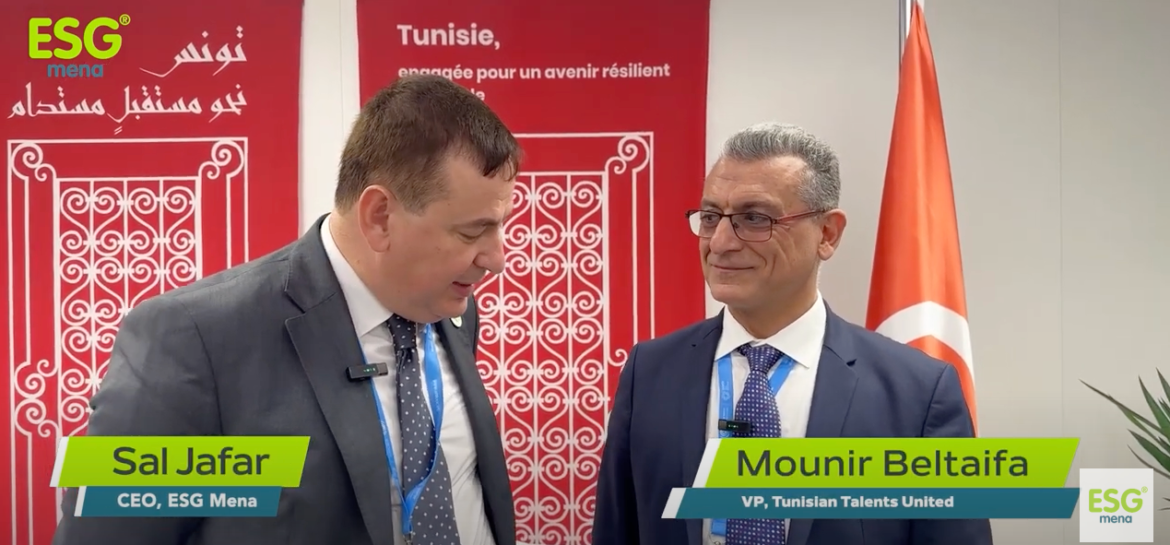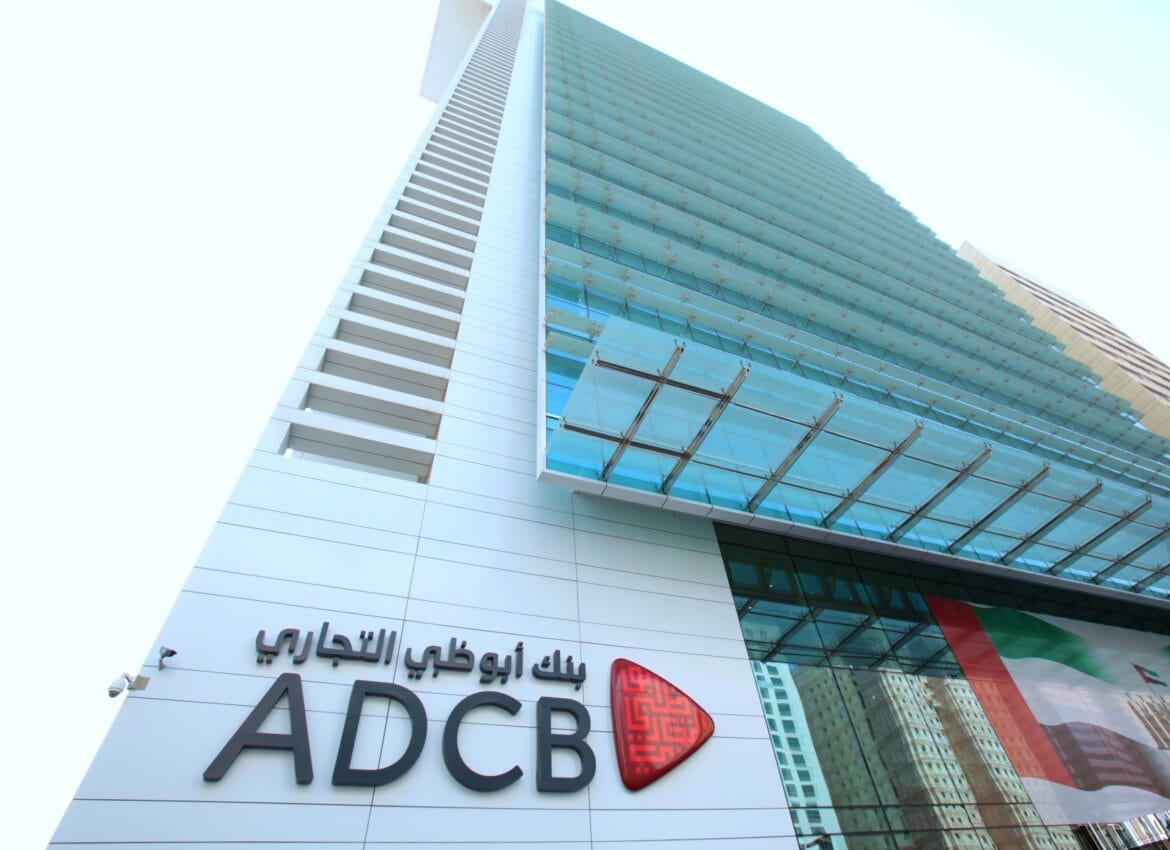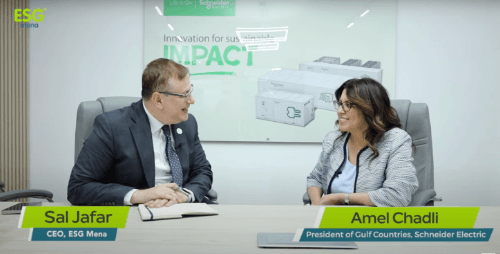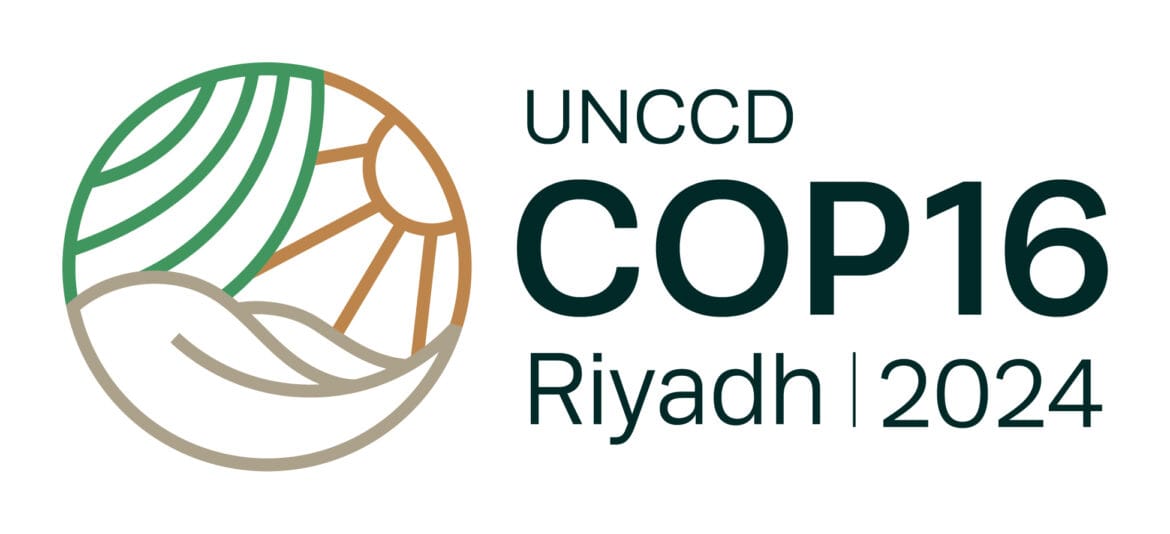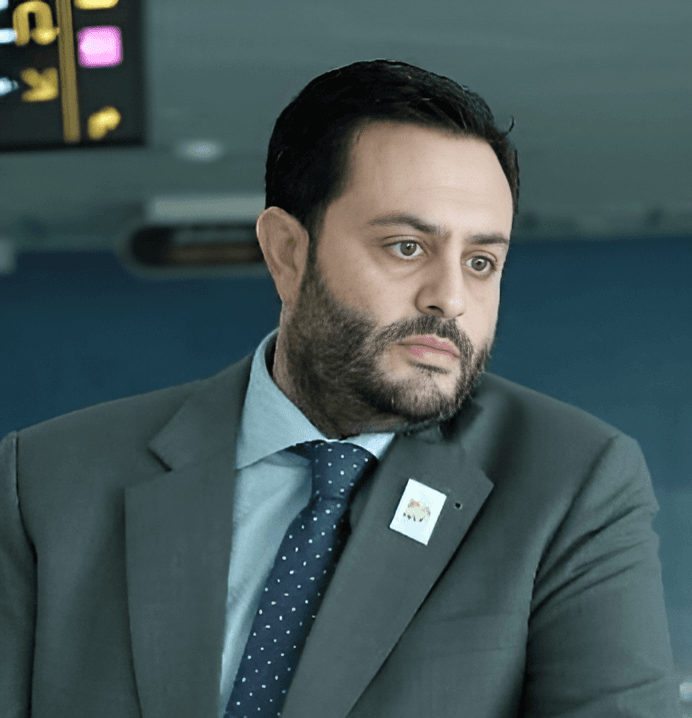At COP29, Sal Jafar, CEO of ESG Mena, spoke with Mr. Mounir Beltaifa, Vice President of Tunisian Talents United, to explore how the NGO is mobilising Tunisian professionals worldwide to contribute to national development. From fostering innovation to driving impactful projects, the discussion spotlighted the power of global collaboration in shaping Tunisia’s future.
Author
rachel
Brazil, UN and UNESCO Launch Global Initiative for Information Integrity on Climate Change
by rachel
written by rachel
In an effort to address disinformation campaigns that are delaying and derailing climate action, the Brazilian government, the United Nations (UN) and UNESCO are joining forces to strengthen research and measures to prevent further damage to climate mitigation.
The Global Initiative for Information Integrity on Climate Change is an important intervention to boost support for urgent climate action at a time when scientists are warning the world is running out of time.
“Countries cannot tackle this problem individually”, said President Lula at the G20 Leaders’ Summit in Rio de Janeiro. “This initiative will bring together countries, international organisations and networks of researchers to support joint efforts to tackle disinformation and promote actions in preparation for COP30 in Brazil.”
Initially discussed in the G20 framework, the Initiative is being established as a dedicated multilateral collaboration among States and international organisations to fund research and action promoting information integrity on climate issues. Aiming to expand the scope of research into climate disinformation and its impacts, the effort will gather evidence from around the world to inform and bolster strategic action, advocacy and communications.
Countries committing to the Initiative will contribute to a UNESCO-administered fund, with a goal of raising an initial USD 10 to 15 million over the next 36 months, to be distributed as grants to non-governmental organisations to support their work to research climate disinformation integrity, develop communication strategies and undertake public awareness campaigns. So far, Chile, Denmark, France, Morocco, the United Kingdom and Sweden have already confirmed participation.
“We must fight the coordinated disinformation campaigns impeding global progress on climate change, ranging from outright denial, to greenwashing, to harassment of climate scientists”, said António Guterres, UN Secretary General. “Through this Initiative, we will work with researchers and partners to strengthen action against climate disinformation.”
The risk posed by climate disinformation has been recognised by the Intergovernmental Panel on Climate Change (IPCC) which stated in 2022 that “deliberate undermining of science” was contributing to “misconceptions of scientific consensus, uncertainty, disregarded risk and urgency, and dissent.”
The Dubai Financial Services Authority (DFSA), the independent regulator of financial services conducted in and from the Dubai International Financial Centre (DIFC) hosted its Annual Outreach session, drawing more than 500 participants from across the financial services sector. The event underscores the regulator’s commitment to enhancing industry collaboration, innovation and compliance.
As part of the Annual Outreach, the DFSA announced the publication of its 2024 Cyber Thematic Review, assessing the cybersecurity maturity and resilience of Firms operating in, and from, the DIFC. The Review is aligned with the UAE and Dubai Cybersecurity strategies, and highlights the authority’s commitment to enhancing cybersecurity standards across the financial sector.
The number of Authorised Firms has surged by 25 per cent between 2022 and 2024, and the Review revealed continuing improvement in cybersecurity maturity within the DIFC. It examined progress made in Firms’ cyber risk management programmes since the last DFSA report in 2022 – highlighting emerging good practices, areas of improvement, and actionable recommendations for strengthening defences against evolving cyber threats.
Key Findings
- Governance – On average, 80 to 90 per cent of Firms implemented the best practices to ensure accountability, transparency and compliance mandated by the DFSA’s rules.
- Baseline best practices – Firms declared that on average, they have implemented 90 per cent of the fundamental best practices outlined in the Rules. They ensure the effective and secure operation of systems, software and infrastructure.
- Resilience – Remains at approximately 80 per cent given improvements in the implementation of resilience requirements which enable systems, networks or infrastructure to continue to function despite disruptions, failures or unforeseen events.
The DFSA’s 2024 Annual Outreach also featured comprehensive updates from the DFSA’s Policy, Enforcement, and Authorisation Divisions, providing attendees with insights into the latest regulatory developments, enforcement priorities and licensing enhancements designed to streamline compliance processes.
“(The) Annual Outreach has been a pivotal step in reinforcing trust, transparency and collaboration within the financial sector”, said Justin Baldacchino, Managing Director of Supervision at the DFSA. “Cybersecurity is central to the DFSA’s mission to protect the financial ecosystem within the DIFC, and the findings of our latest Review show encouraging progress, but they also highlight areas where Firms must further strengthen their defences.”
“I would like to thank all our industry participants who joined this year’s Annual Outreach – together, we will continue to strengthen the future of finance with DIFC.”
Discussions notably centred on fostering technological innovation while ensuring robust measures against financial crime, including anti-money laundering and combating the financing of terrorism.
In a bid to advance international collaboration, energy storage manufacturer Volts UAE Limited and the Azerbaijan Investment Company (AIC) signed a memorandum of understanding (MoU) to establish energy storage production in Azerbaijan and facilitate the entry of Volt UAE’s products into new markets.
Vladimir Mlynchik, Chairman of the Board of Volts UAE, met with AIC representatives to sign the partnership agreement at COP29. Under this agreement, AIC plans to provide funding and local support for Volts UAE to create a large-scale assembly and manufacturing facility in Azerbaijan for industrial and home energy storage systems.
“We are truly amazed at Azerbaijan’s commitment to building a sustainable, green, carbon-neutral economy, and are pleased to be part of this strategy”, said Vladimir Mlynchik. “From our perspective, the country is already a regional leader in the integration of advanced green technologies.”
“So, we plan to build a facility for large-scale assembly of industrial and home storage systems to serve the Azerbaijani market and export products to Central Asia.”
Volts UAE will support green energy projects that aim to achieve Azerbaijan’s sustainable development goals and create a reliable renewable energy sector. This approach will contribute to the country’s transition to energy independence and help it gain expertise in the field of energy storage.
“This year, the Azerbaijani company Turan Energy joined forces with Volts Energy, a subsidiary of the Volts Group, to create specialised company TuranVoltsEnergy, a new entity committed to advancing green energy projects”, said Habib Hasanov, Chairman of TuranVoltsEnergy LLC.
“Previously, both companies effectively collaborated as a consortium, bringing to life Azerbaijan’s National E-Mobility Plan, and they continue to enhance that success. With Volts, a leading manufacturer of energy storage solutions, joining the coalition, Azerbaijan’s energy transition is now more achievable than ever. We believe that synergy created by this partnership will facilitate cutting edge technology transfer and bring more investment opportunities to the country.”
The total investment in the new energy storage facility in Azerbaijan will amount to $20 million, of which $10 million will be provided by AIC and $10 million by Volts UAE.
The Abu Dhabi Commercial Bank P.J.S.C (ADCB) has achieved an upgrade in its MSCI ESG rating to ‘AA’ from ‘A’, reflecting the Bank’s progress in sustainable finance initiatives, ESG due diligence, industry-leading data privacy management and security and ethical business practices. The upgrade places ADCB in the MSCI ‘industry leader’ category for managing ESG risks and opportunities.
ADCB’s strongest result came from the impact of its environmental financing, achieving a score of 9.1 out of 10. This emphasises the Bank’s commitment to sustainable finance, having financed AED 47.5 billion in sustainable activities since 2021, and successfully issuing AED 4.2 billion in green bonds.
ADCB has also launched its second Green Bond Report, which details the impact of the Bank’s Eligible Green Loan Portfolio, which has grown by 84 per cent year-on-year with an estimated 1.8 million tonnes of CO2 emissions avoided annually.
The report is independently assured in accordance with its Green Bond Framework, based on the International Capital Markets Association (ICMA) Green Bonds Principles.
“The notable ESG rating upgrade reflects ADCB’s commitment to industry leading practices in sustainability”, said Ala’a Eraiqat, Group CEO of ADCB. “As a major UAE financial institution, we recognise the importance of managing our impacts for the benefit of our stakeholders.”
“Sustainability is a cornerstone of our corporate strategy, and we continue to integrate environment and social considerations into our lending decisions, and to increase sustainable financing. Our 2024 Green Bond Report showcases how the Bank’s financing of environmental projects delivers a positive impact for society and supports the UAE Net Zero by 2050 strategic initiative.”
The Bank is a member of the UN-convened Net Zero Banking Alliance (NZBA), a group of over 140 leading global banks with more than USD 74 trillion in total assets committed to financing climate action and reducing their emissions in line with the goals of the Paris Agreement.
In an effort to increase solar power in industrial business, ENGIE, a leader in low-carbon energy and services, has signed a Power Purchase Agreement (PPA) with Al Jouf Cement Company (AJCC) to develop a 22 MWp solar photovoltaic (PV) plant at AJCC’s cement facility located in the Northern Borders Province of Saudi Arabia.
The signing ceremony took place at the Turaif cement plant, and was attended by HH Prince Faisal Bin Sultan Al Saud, Prince of the Northern Border. This strategic project is a key element of advancing Saudi Arabia’s Vision 2030 renewable energy goals, supporting emission reductions and promoting sustainable energy adoption in the industrial sector.
ENGIE has expertise in solar PV solutions, and the plant will operate as a fully integrated system tailored to meet Al Jouf Cement’s unique energy needs. The plant will span over 420,000 square meters, and the solar PV installation will provide efficient on-site power generation designed to decarbonise the company’s operations, lowering its carbon footprint over the project’s 25-year lifespan. This project supports Al Jouf Cement’s commitment to sustainability and contributes to Saudi Arabia’s broader environmental objectives.
“At Al Jouf Cement, we are proud to lead by example in adopting sustainable practices within the Kingdom’s industrial sector,” said Abdulkarim M Al Nuhayer, CEO of Al Jouf Cement. “Our partnership with ENGIE represents a significant step toward achieving the goals of Saudi Vision 2030 by reducing carbon emissions and embracing renewable energy.”
“By integrating this 22 MWp solar plant into our operations, we are not only enhancing our energy resilience, but also reaffirming our commitment to environmental stewardship for a better future for Saudi Arabia.”
ENGiE’s approach to solar PV includes developing, designing, building, owning and operating the solar system, with installations on rooftops or nearby land to maximise efficiency and sustainability. Through the PPA, Al Jouf Cement will purchase the entire electricity output at a fixed rate, ensuring predictable energy costs and independence from conventional sources.
“In alignment with the Kingdom’s vision for the future, we are honoured to partner with Al Jouf Cement in decarbonising their operations”, said Pierre Cheyron, Managing Director of Energy Solutions, ENGIE. “This project underscores our commitment to fostering sustainable and resilient solutions in the GCC.”
Amel Chadli of Schneider Electric Discusses Corporate Environmental Sustainability
by rachel
written by rachel
In a conversation with Sal Jafar, CEO of ESG Mena, Amel Chadli, President of the Gulf Region of Schneider Electric discusses how the company is developing energy efficiency and digital transformation, technology and AI, and collaboration with governmental and educational institutions.
Investcorp, a global alternative investment firm, has announced the appointment of Mashaal AlJomaih as CEO of Investcorp Saudi Arabia.
Mr. AlJomaih previously held the role of Managing Director within Investcorp Private Wealth and Deputy CEO of Investcorp Saudi Arabia – he joined the firm in 2022 and has over 20 years of experience in investment banking. Over the past two years, Mr. Jomaih has worked closely with outgoing CEO, Mr. Bajsair, to grow Investcorp’s business in the Kingdom.
“I am excited to take on this role”, said Mr. Jomaih. “Since joining Investcorp in 2022, we have seen a wealth of opportunities and appetite for investment in the Kingdom, seen through our pre-IPO vehicle. I look forward to continuing Investcorp’s growth strategy in the region, capitalising on a dynamic and ambitious market.”
Nahar Houthan, who has been with the firm since 2016, will assume the role of Deputy CEO. Yasser Bajsair, outgoing CEO, has retired from his role – he joined Investcorp in 2010 and has played a key role in growing the firm’s business in Saudi Arabia.
Investcorp’s Saudi Arabia team have a relationship network across both private wealth and institutional investors, including ultra-high net worth individuals, family offices, financial institutions, pension funds, endowments and sovereign wealth funds.
“Mashaal has been instrumental in supporting the growth of our business in Saudi Arabia over the past two years”, said Yusef Al Yusef, Investcorp’s Global Head of Distribution. “Having worked with him closely, I know he will continue the firm’s expansion in the Kingdom with his rich knowledge and understanding of the local market.”
Saudi Arabia Launches Young Researchers Awards at UNCCD COP16 Science Pavilion
by rachel
written by rachel
In a bid to accelerate critical research and innovative solutions addressing land degradation, drought and desertification, Saudi Arabia has launched the Young Researchers Award at the COP16 Science Pavilion, with a total prize pool of $70,000.
A total of seven awards of $10,000 each will be given to early career researchers (up to age 35) who can demonstrate impactful and significant contributions to key areas, such as land management, drought resilience and land restoration. The award categories are land restoration, sustainable agri-food systems, equitable land governance, community and youth engagement, science, technology and innovation, resilience and climate adaption, and finance and sustainable land investments.
The awards will be presented at an event during the United Nations Convention to Combat Desertification (UNCCD) COP16 in Riyadh. Nominees will be flown to Saudi Arabia and provided five days of accommodation. Winners will also be given a unique opportunity to be mentored by leading experts.
“Land degradation, drought and desertification are leading causes of many issues impacting people around the world, be it food insecurity, water insecurity or forced migration”, said Dr. Osama Faqeeha, Deputy Minister for Environment, Ministry of Environment, Water and Agriculture, and Advisor to the UNCCD COP16 Presidency. “COP16 in Riyadh is an opportunity to find urgent solutions, and help turn the tide on these global crises.”
The international competition encourages applicants to demonstrate innovative approaches, long-term sustainability and scalability, and focus on how their work can benefit the Middle East. Submissions are open until 22nd November and will be evaluated by a dedicated scientific committee that includes leading experts in Saudi Arabia.
As 40 per cent of land is already degraded according to the UNCCD, Saudi Arabia’s incoming UNCCD Presidency is seeking to mobilise international efforts and cooperation to deliver multilateral action on a range of pressing issues, including land restoration and drought resilience.
Researchers and innovators are encouraged to submit their work through the official award website here
The Most Important ESG Questions – What Agencies and Firms Need to Agree
by rachel
written by rachel
ESG (environment, social, governance) has to be considered when looking at almost every PR brief. For many companies it will be central for all proposals, or at least they may want it to be part of their plans.
For any agency looking to take on an ESG brief this is the first question we need to answer – is ESG the right approach for the company? This may seem very obvious but is often the point which is overlooked. The client has asked for ESG communications and we just follow their request and find a way to deliver on the brief.
In my experience this is where things can go wrong.
If we look at the origins of ESG we have to go back to 2004 and the publication of the United Nations report ‘Who Cares Wins’, (Global Compact Initiative – Who Cares Wins. Connecting Financial Markets to a Changing World) which is generally seen as the first high level endorsement of the ESG concept.
This is very important as ESG was very clearly linked to financial markets, and by implication firms working in or related to those markets, with the emphasis being on the ‘G’ governance element.
We often get firms who are not public, or involved in financial work, asking for us to look at or write their ESG strategy. This is all well and good, but is this the right approach for them, or would their actions in this area be better positioned as CSR (Corporate Social Responsibility) or as environmental initiatives.
I read a comment from another communications firm which said that more and more companies are ‘adopting ESG as a framework for explaining their corporate responsibility goals and progress’. Our advice is that unless your business is already structured to meet ESG reporting, it takes a lot of resource and work to make this happen.
ESG requires data on environmental factors to show the impact on the planet which includes carbon emissions, waste management, and resource usage. You also have to report on the company’s relationship with its employees, customers, and community to show how you are addressing social factors and finally, governance looks at the internal structures that guide company decision-making, and the transparency of the reporting of these decisions.
If as a firm these elements are not baked into the way you operate then there will be a problem in how you report against them.
ESG has to be embedded into the culture of a company, and this does not happen overnight. There needs to be a methodology for recording and reporting your ESG impact. This should include, at the lowest level, aligning with a recognised sustainability impact reporting standard. And, this should have data going back over a significant period of time.
If the firm has ESG embedded and they have a story to tell we look at communications, which are:
- Data led – using the information that the reporting standards provide. In a sector which can be seen as aspirational rather than actual, the more hard data that can be used the stronger the positioning which can be delivered.
- Narrative based – all elements of ESG, even Governance, are best positioned through telling the stories of the people involved, the benefits delivered, and the actions taken. ESG needs faces that make the results real.
- Talking change – there needs to be the ability to benchmark the data against what has happened before and future delivery. This means that there is nowhere to hide! As soon as firms start ESG reporting they have to maintain the process.
- Honest – ESG is not the place for vague statements and inaccurate reporting. If this happens firms will either not get coverage or will be called out.
If firms fail in any of the communication areas, they can get accused of ‘ESG or Green Washing’. This immediately turns what the executive hoped would be a positive area of communications into a potential crisis scenario. Companies accused of green-washing face a very difficult time and a lot of hard work to rebuild their reputations.
This is why we always start the process by making sure that aligning to ESG is the right approach for a company. If it is, and the company has invested in ESG and this is aligned to the business, then there are great opportunities to use ESG messaging to support financial results and show the strength of the strategy
Going back to the reason why ESG was developed as a reporting standard, it was to show investors the ethical positioning and transparency of companies – to identify companies who care.
If ESG is being used to misrepresent the work of a company and it is just ESG-washing the approach fails. There is an increasingly large number of investors who are becoming disillusioned with ESG because of the lack of regulation and no clear standards These investors are questioning the true benefits of their investment in this sector.
So, I will end with the comment from Larry Fink of BlackRock
“I don’t use the word ESG anymore, because it’s been entirely weaponised … by the far left and weaponised by the far right.”
If we are communicating ESG we need to make sure we are not just creating ESG-washing and becoming part of the problem. Many firms can and should communicate on their CSR and environmental work but will need time to develop an ESG programme which can be effectively communicated.
Effective ESG communications are rewarding, beneficial and for some companies’ game changing. We love working in this area but are always pragmatic about what can be achieved.
By Habib Bacha
Habib Bacha is founder of Credo Communications LLC – Media Consulting Company
For more op-eds, head here




